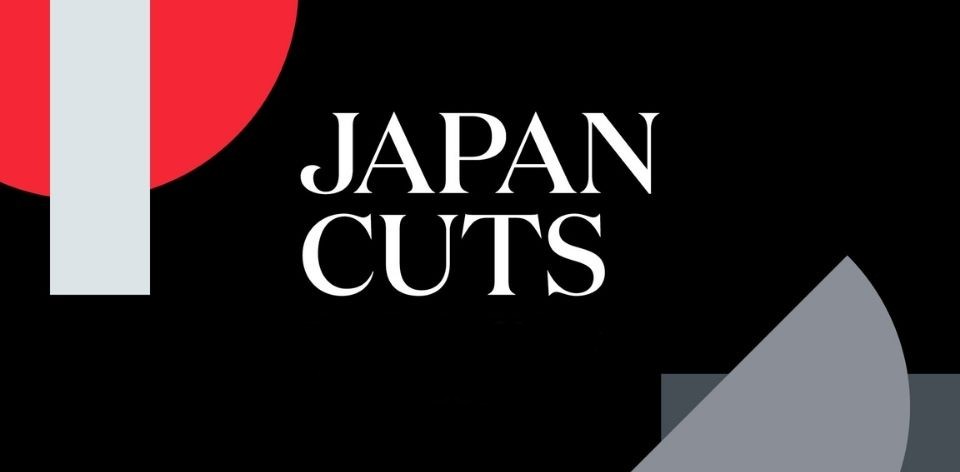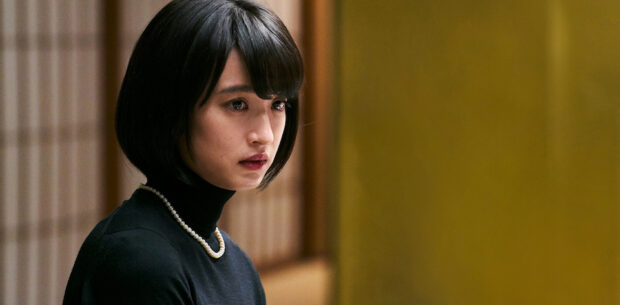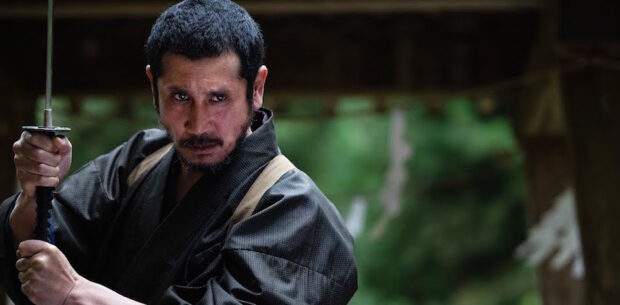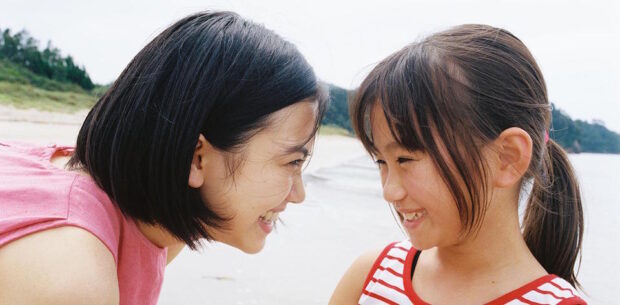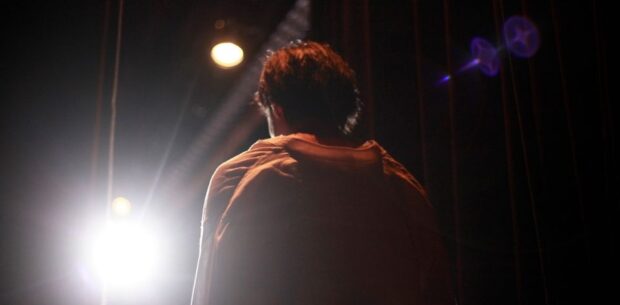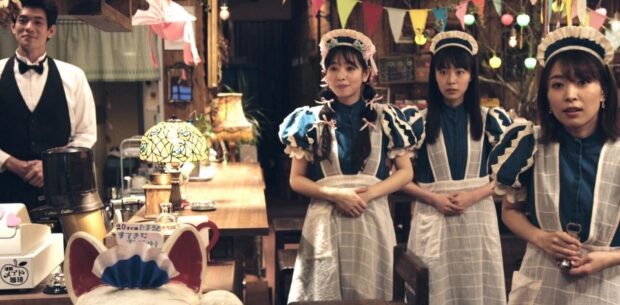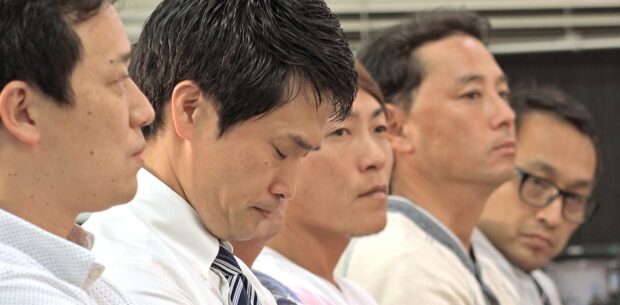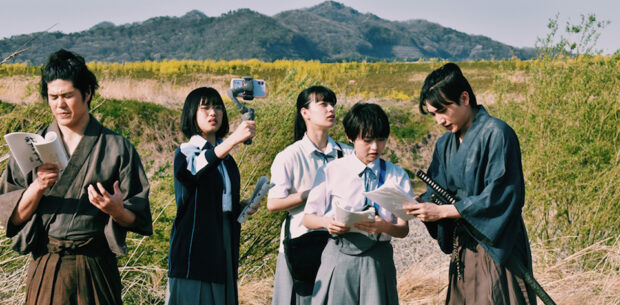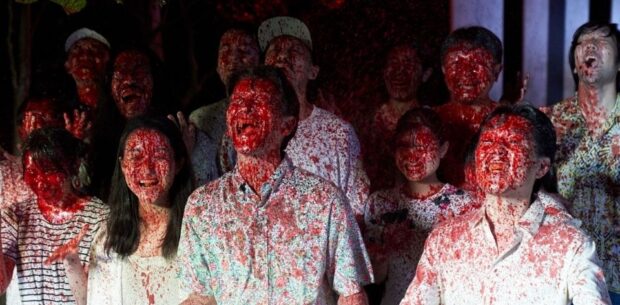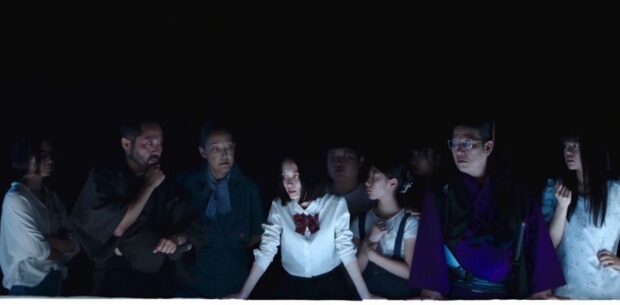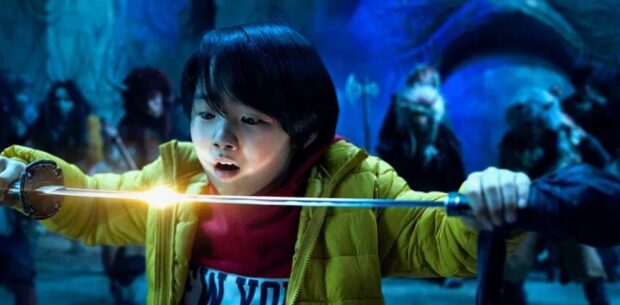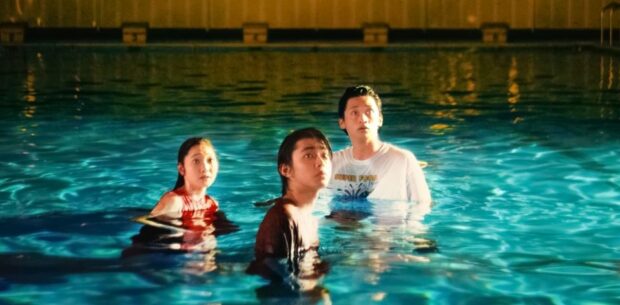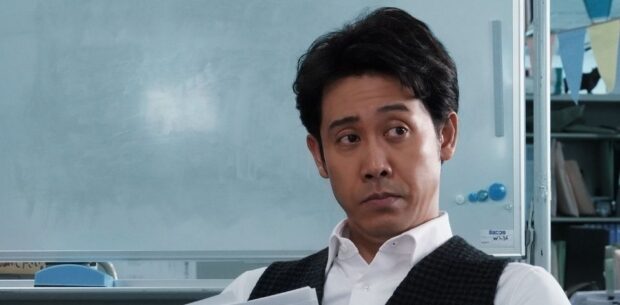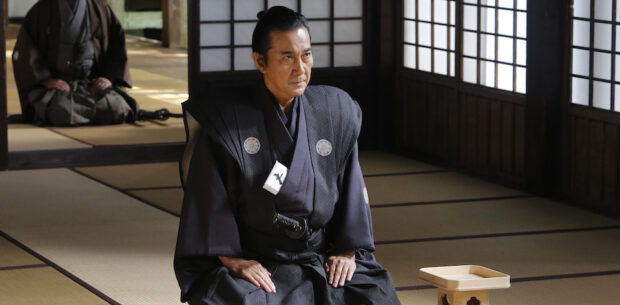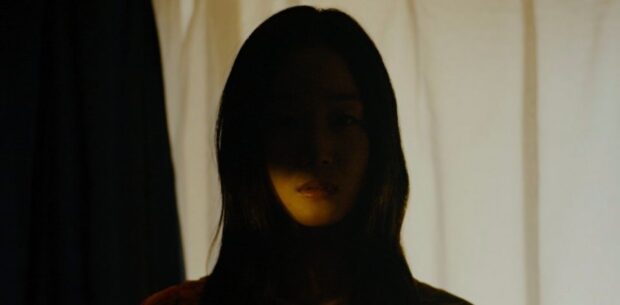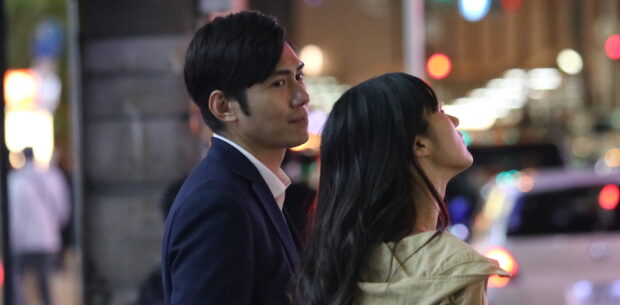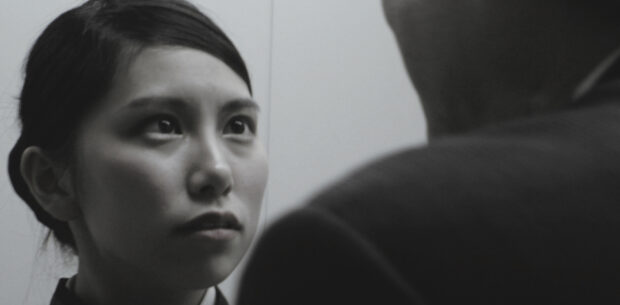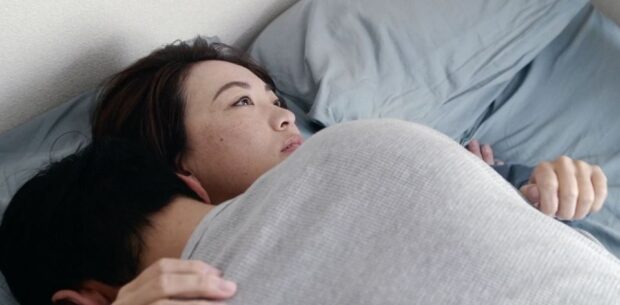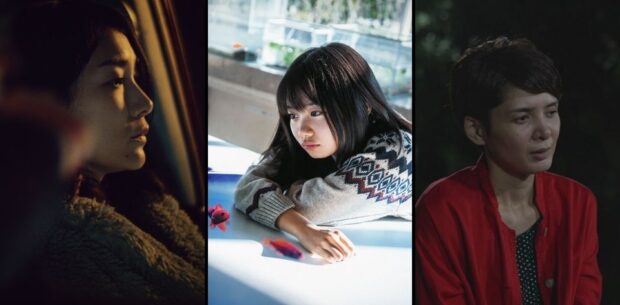You couldn’t ask for more from a festival than the magnificent JAPAN CUTS. Since its launch in 2007 with around 15 films, it now averages about double that every year. The massive celebration of contemporary Japanese cinema is one of the best ways to see what is making waves in Japan — and who the emerging voices might be.
This year was one of the finest, defying the pandemic and running a hybrid event in the Japan Society’s Lila Acheson Wallace Auditorium and online simultaneously. Some films arrived directly from international festivals, while others had their North American and international debuts.
Highlights include GO SEPPUKU YOURSELVES, which is not only Toshiaki Toyoda’s final film in the Resurrection trilogy, but a dangerous title to tweet (as we found out the hard way). There were first films from new voices like Murayama Takeshi (SPAGHETTI CODE LOVE) and Soshi Matsumoto (IT’S A SUMMER FILM), as well as veterans taking a final bow (Nobuhiko Obayashi’s LABYRINTH OF CINEMA).
Our massive thanks goes out to the folks at the JAPAN CUTS team, who have never been anything less than generous souls with us.
So, let’s cut to the chase: here’s a look at all of the films we managed to catch at JAPAN CUTS 2021. Links to full reviews are found alongside the capsules. You can also see the rest of our coverage at our JAPAN CUTS hub.
FEATURE FILMS
Aristocrats
Beautifully shot and impeccably cast, Sode Yukiko’s third feature unfolds in bookish chapters to give a portrait of a life, well…lived. Based on novel by Mariko Yamauchi, we named Sode’s tale of two women one of the best films of 2021 so far. When we meet the fairly upper-class Hanako (Mugi Kadowaki), she has recently split with her fiancé. The provincially born Miki (Kiko Mizuhara), worked hard to earn a place in a fancy university but has since fallen on more difficult times. ARISTOCRATS may not be be for all tastes: it’s wanders to the slow beat of its own drum. Yet its themes of belonging and expectation are universal, and one can’t help but feel that this is the kind of film that will reveal more of its subtleties on repeat viewings. Read full review.
Go Seppuku Yourselves
Toshiaki Toyoda has rapidly become a festival staple, thanks in part to his outstanding collisions of sound and vision in Wolf’s Calling and The Day of Destruction. As with the latter film, the global pandemic lurks behind the Meiji facade. The demon that is assumed to have ‘poisoned the well’ could very much be an analogy for the intangible nature of a pandemic, even if the film treads a fine balance between literal and figurative causes. You can read our full review of that film here.
The Goldfish: Dreaming of the Sea
A remarkable coming of age story that manages to package several worlds of hurt and rebuilding into a delicately slender vessel. A film that slowly unfolds, a deft feat for a film with such a slender running time. It’s rarely said overtly, but we soon learn that both lead characters Hana and Harumi have a shared experience of a difficult and sometimes abusive relationship with their mothers. Sara Ogawa signals her arrival as storyteller to watch. Read our full review.
Spaghetti Code Love
Murayama Takeshi’s debut narrative feature begins with a question: “Why? Why me?” It’s the anguished cry of a child in an arcade, and all a (as-yet-unnamed) woman can do is just hold him. So begins a series of interconnected stories of people looking for love and companionship in Tokyo, and the collision of their expectations with reality. Read full review.
Labyrinth of Cinema
So good it made it to JAPAN CUTS two years in a row! Nobuhiko Obayashi’s final film is not so much watched as absorbed. Filled with autobiographical and cinematic touchstones from his past as well as Japan’s, it’s the capstone on a formidable career. Read our full review.
Sasaki in My Mind
Developed in collaboration with actor Gaku Hosokawa, and based on someone he knew at school, Takuya Uchiyama’s latest project is both personal and universal in its themes, this film for the downtrodden is an intimate character study of the people who impact our lives and learning to shine in one’s own spotlight. A film that’s quietly affirming and a reminder that it’s never too late to be true to yourself. Read full review.
Ito
A film about a shy shamisen-playing country girl who winds up working in a maid cafe? Thanks to director Satoko Yokohama and co-writer Koshigaya Osamu, not to mention the amazing talents of Ren Komai (True Mothers) in the titular role, this absolutely works. A heartfelt coming of age drama with some of the best shamisen-based denouement you’ll see in a film this year.
Ushiku
Ian Thomas Ash (Sending Off) takes a look at refugees in Japan, where a shockingly low 0.4% of applicants are accepted. Ushiku Detention Center is the focus of Ash’s film, using it as a microcosm of the hardships refugees must undergo after fleeing their home countries and being denied refugee status by Japan. “This isn’t a ‘foreigner’ problem,” says one official. “It’s a Japanese problem.” Going one step further, let’s agree that it’s an issue the whole world needs to agree on how to move forward with. Often heartbreaking, always confronting, this film needs to be seen by lawmakers everywhere.
Why You Can’t Be Prime Minister
While there are moments during the opening scrawl that this feels like it will be a one-sided affair — and yes, there are elements of that — it works best as a mostly unguarded portrait of a ‘Mr. Smith’ type who never quite gets the office he strives for. Also a great way to learn a little bit more about Japan’s parliamentary system, which is decidedly complex.
It’s a Summer Film
A genuinely heartfelt love-letter to film, or at the very least it’s a push against the idea that movies are disappearing. Soshi Matsumoto’s feature debut, following a career in commercial and short work, it’s a sci-fi film of sorts that sees a group of school friends attempting to make a samurai film, but discover one of their number is a time traveller from the future. IT’S A SUMMER FILM is exactly what it says: a film about the joys of summer in all their fleeting and life-changing moments. Read our full review.
Wonderful Paradise
Wonderful and weird go hand-in-hand in this truly bizarre film that just keeps getting stranger – and that’s just one of the things to love about it. It begins with a series of random arrivals at a mansion in the process of being packed up for sale by a quirky series of family members. After the disgruntled daughter puts out a social media invite for a party, the event becomes a festival, complete with food stalls and activities. Yet nothing can really prepare you for the back half of this film. From a child transforming into a stick through to a mutant coffee bean growing out of control, the script is equal parts midsummer sex comedy and pure train of thought. Read our full review.
B/B
A curious debut that switches tones as readily as its protagonist changes personalities. It would be very easy to see this as something that mocks or belittles dissociative identity disorder as so many similar films have been know to do. Yet in a searing final speech, it’s possible that Sana’s condition serves as a microcosm for broader society, arguing that we’re collectively complicit in the ills of the world. Read the full review.
The Great Yokai War: Guardians
Takashi Miike returns with a spiritual sequel to his 2005 monster mashup by mashing up even more monsters and having a jolly good time in the process. It’s actually a standalone story that takes place in the same kind of world. By the time you read this review, Miike has already moved onto his next three films. In fact, The Mole Song: Final is due out in Japanese cinemas in November. His films may not always be perfect (or consistent), but there’s an undeniable heart that still beats at the centre of his family fare. Read the full review.
Town Without Sea
We’ve seen Elaiza Ikeda in some excellent films over the last few years, from Tori Girl to Kakegurui, Sion Sono’s The Virgin Psychics and JAPAN CUTS stablemate Kiba: The Fangs of Fiction. In her directorial debut, she presents a leisurely paced and beautifully shot coming of age story that is fully aware of the tropes of the summer film. Indeed, it even calls them out at times. Don’t expect much drama, but do expect some beautiful character moments and another stellar supporting turn from the ubiquitous Lily Franky.
Kiba: The Fangs of Fiction
When we last encountered Daihachi Yoshida a few years ago, it was with the excellent character study The Scythian Lamb. His follow up, an adaptation of Takeshi Shiota’s novel, takes a very different group of eclectic personalities and pits them against each other in the savage world of publishing. There’s a whole series worth of storytelling to be had here, so perhaps the only disappointment is that it all has to wrap up so quickly. Read the full review.
The Pass: Last Days of the Samurai
If history is told in portraits, then Takashi Koizumi’s film on the passing of the Tokugowa Shogunate lingers on a vividly painted point in time. More than anything, Koizumi’s film has a very particular sense of time and place. The period details, especially the blend of Japanese and increasingly western influences, is remarkable. Read the full review.
The Blue Danube
Named after the famous Strauss waltz, the Japan Times described this as a film about “finding levity in the drudgery of war.” Concerning a fictional town at a long-term war with the neighbouring village, it’s the fourth film from director Akira Ikeda (Anatomy of a Paper Clip). Experimental and absurdist in form, the use of repetition strangely grows on you, but its message about the futility and abstract nature of war couldn’t be clearer. It certainly ends with a bang.
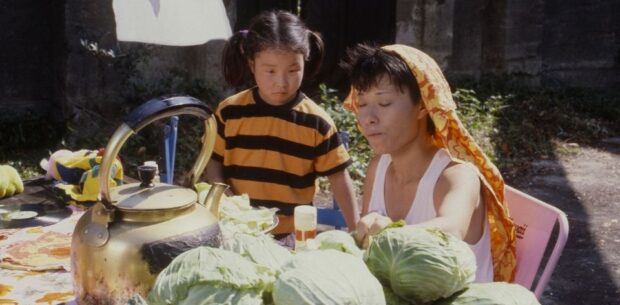
Robinson’s Garden
More than two decades before Wonderful Paradise, director Masashi Yamamoto presented this 1987 slice of DIY punk. Shot by James Jarmusch’s cinematographer Tom DiCillo, this sometimes overlooked gem blends documentary and psychedelic elements to create something that’s both immediate and dreamlike. Some have criticised this for its lack of pace, but that just adds to the floating world that Yamamoto has crafted here. Kumiko Ohta, who appeared in Yamamoto’s earlier film Carnival of the Night (1981), is a delight as the often frustratingly chaotic Yumi.
Mari and Mari
An intriguing debut that delves into the changing nature of relationships, duality and how we become different people at various stages in our lives. What’s evident by the end of director Tatsuya Yamanishi’s esoteric film is that none of this is a linear process either. The changes relationships go through are sometimes impermanent, and can settle back into something altered but the same years later. Read the full review.
Come and Go
This big hyperlinked film arguably overstays its welcome by a few scenes, having bitten off a massive cast of characters. In this sense, it would make a solid double-feature with Spaghetti Code Love (above). Yet Lim Kah Wai’s film about surviving (in) Osaka is an ambitious movie that explores some of the less publicised aspects about Japanese culture along with attitudes to the sex industry and immigrant culture. The latter was particularly interesting so soon after watching Ushiku.
Company Retreat
Atsushi Funahashi’s piece is a timely film about workplace sexual harassment in the #MeToo era, dealing with a highly publicised sexual harassment case and the social media reactions. Based on a true story, this drama uses documentary techniques and first-hand accounts of an actual sexual harassment case to dig into the polarising Japanese reactions. Yet this super important subject matter that is rendered dull through execution: a series of claustrophobic black and white ‘interviews’ and group conversations. Uncomfortable at times, but not because of any mirror being held up to society.
My Sorry Life
Yoshio won’t get married until Kei is pregnant, she secretly takes contraceptives. So when Kei finally decides to leave him, Yoshio declares he is pregnant. As painful as Yoshio is, the series of scenes that Kozue Nomoto puts her protagonist Kei through feel disconnected and ephemeral. Or maybe that’s the point?
SHORT FILMS
At in-person festivals, shorts are often those things that you get before a feature or bundled as a package. The beauty of the online and hybrid environment is that one gets to take each of these films on their own merits, allowing them to gestate and resonate on their own merits.
Yet if there was a theme to the narrative short films at JAPAN CUTS 2021, then it was unquestionably the pandemic. After all, it’s been the theme of the last two years of our lives. In the selection of four short narrative films — Anshul Chauhan’s LEO’S RETURN, Mayu Nakamura’s AMONG FOUR OF US, Toshiaki Toyoda’s GO SEPPUKU YOURSELVES and Yoko Yamanaka’s BORN PISCES — themes of isolation and connection resonate. We’ve done a deep dive into all of these films as well.
On the avant garde end of the scale, there were eight films in the annual experimental shorts section. In HONEYMOON (密月旅行), the longest of the short films at 29 minutes, director and festival favourite Yu Araki explores the historic and current European obsession with Japonisme by recreating the wedding from Madame Butterfly with historical figures and the moon landing. Masami Kawai’s ZONA is a very different beast. Made for people who like their short films like they like their cups of tea: experimental and set in the near future of Los Angeles. Then there’s the wonderfully titled SCHOOL RADIO TO MAJOR TOM, in which director Chisaka Takuya takes us back to the summer of 1989.
In Onohana’s IN A MERE METAMORPHOSIS, animation was produced in collaboration with visitors to her past exhibitions, while Hakhyun Kim’s RED TABLE is like a nightmarish Pixar narrative. Of course, the pandemic remained a thread in Koki Tanaka’s REFLECTIVE NOISES (RECONFIGURATION) piece commissioned by the (currently locked down) Sydney Opera House, as well as Yoko Yuki’s 4 JUNE, 2020. The floating world of Hirofumi Nakamoto’s NIGHT SNORKELING might remain just a dream, but it also might serve as inspiration to help us through this pandemic landscape.
JAPAN CUTS 2021 ran from 22 August to 2 September 2021 as a hybrid festival. You can check out our entire coverage, and previous years, at our JAPAN CUTS hub. Read more coverage of Japanese films from the silent era to festivals and other contemporary releases. Plus go beyond Japan with more film from Asia in Focus.

